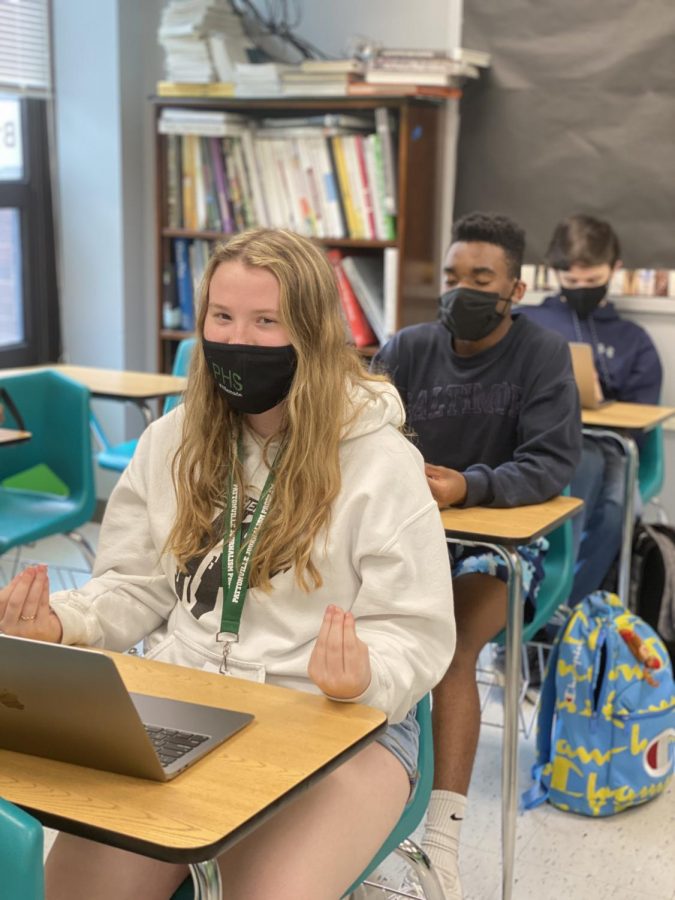Isolation: What Are the Costs for Safety?
During Pirate Press, Mackenzie Rosenthal, Ian Bailey, and Christian Movick try different techniques to destress.
April 27, 2021
While once considered peaceful, alone time during quarantine created the opposite effect for some. Feelings of isolation and depression have dominated discussions. Since the pandemic, local and national outlets have covered a serious yet often ignored topic: teens’ mental health.
Over the past year, the pandemic has affected teens in their personal and outside lives in a number of negative ways. A recent article from Healthline shows that parents have reported that their teens experiencing sleeping issues, withdrawal from family, and aggressive behaviors. These symptoms are some common signs of depression and mild anxiety.
While most schools think returning fully in-person will solve most of their potential problems, there is so much happening with students behind the scenes. Grades and test scores may improve, but the mental health of students still may be overbearing and very draining.
Something important to realize is that people deal with mental illnesses differently. It all depends on their environment and how much they are dealing with. Having just one perspective on just one type of mental illness will not improve other students’ illnesses.
“A common stereotype is that you are always under a panic attack and that anxiety and depression are the same thing because most people experience anxiety differently,” said junior Alex Bullard.
Talking to students and having a one on one relationship with them will allow them to be much more open about what they’re going through, and how you can help. You also have to let them know that they are not alone.
Admitting the issue is the first step to getting better. Learning coping strategies and seeking professional help is a great way to decrease the amount of stress that the student is dealing with. Not just teenagers deal with mental illnesses, adults you know may also be dealing with mental illnesses as well.
Talking to a well-trusted advisor, parent, or even sibling will help students know that they are not alone. Also, finding coping mechanisms that they enjoy will help they dominate what they are going through.
For junior Mackenzie Rosenthal, finding relief from stress can happen with intentionality. “I would suggest just try to breathe and think about things that make you happy. I also sometimes listen to music to calm my nerves,” said Rosenthal. “I’m most relaxed in my bedroom and thinking of the beach.”
Students should know that they are not alone. The first step to conquering stress happens when students admit that they are struggling and ask for help.


